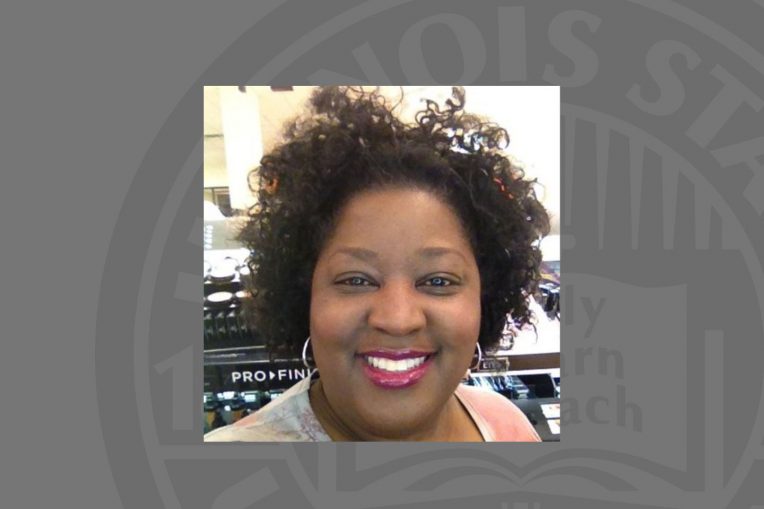Dr. Teresa Lawrence, Ed.D. ’19, refused the role of bystander as she witnessed a crisis unfold within another crisis.
Children in the care of social services were among the most at-risk at the start of the pandemic. As an equity-focused English teacher at Glenbard East High School, she became acutely aware during the pandemic of the large numbers of children who are (or have been) in foster care. She decided to support these children and their families by becoming a court-appointed special advocate (CASA) for Will County in October 2020.
“Students in foster care have unique needs and I wanted to use my experiences of being an administrator, teacher, and veteran of the Armed Forces to help these children and their families be restored or relocated to better and permanent homes,” said Lawrence, a 2019 graduate of the Department of Educational Administration and Foundations’ (EAF) P-12 administration doctoral program.
Lawrence’s recognition of the issue is a testament to her goals as an educator. For almost 30 years, she has served as a high school English teacher and administrator, but her students’ abilities in the classroom is just one of many priorities. She serves as the advisor for both the Black Student Union and Sister-to-Sister. Those environments help her to build stronger relationships with students and understand their needs.
“I have been afforded the awesome responsibility and position to change the trajectory of someone else’s life. That is a heavy load to carry, and I will never take it lightly.”
Dr. Teresa Lawrence
“In light of our current state in the world, I have created a daily professional and personal goal to remain positive and open to new ways of teaching, learning and reaching my students where they are emotionally, socially, and academically,” she said.
Another of her goals is empowering her colleagues and community members to better serve underrepresented students. Part of that work was accomplished through her role as an equity trainer at Glenbard East. Her ability to make an impact in the trainer role was bolstered by her EAF degree. She credits her professors, particularly Dr. Venus Evans-Winters, for inspiring her to push harder when it came to building her own abilities for effectively improving educational environments for traditionally marginalized learners.
“The most important factor for getting my doctorate was the calling to gain knowledge and application of that knowledge for the benefit of BIPOC students as I continue to work on issues of inequality and inequities in the field,” she said.
“EAF provided the missing pieces of information and knowledge that existed for me and replaced it with a blueprint of how to become liberated and think more critically about issues of inequality in education.”
Shortly after her CASA appointment, Lawrence collaborated with Hoff, along with EAF students Allania Moore, Tamekia Bailey, and Angela Shamaa, to present at a speaker series sponsored by the College of Education. Lawrence and her colleagues shared strategies for P-20 instructors to create anti-racist learning environments, particularly for BIPOC students throughout hybrid and remote learning.
Lawrence lauds the opportunity to share new perspectives with educators, but it’s only part of equation when it comes to creating equitable experiences for all learners. There remains a critical need for teachers and school leaders to reflect the backgrounds of their diverse students.
“I consistently found myself in meeting spaces where decisions were made and there were little to no faces of color, let alone women,” she said.
Part of Lawrence’s approach for leaving a mark in this area is to push herself to learn and share more.
She said the EAF program challenged her to grow her skill set and “…model for my BIPOC/girl students an example of resiliency in the pursuit of long-term goals.”
Lawrence is now less than five years from her anticipated retirement date. But while some might see the “finish line” as an opportunity to take their foot off the gas pedal, she’s doubling down, searching for opportunities to make a lasting, positive impact on the field.
For her, that starts and ends with students.
“I have been afforded the awesome responsibility and position to change the trajectory of someone else’s life,” Lawrence said.
“That is a heavy load to carry, and I will never take it lightly.”

